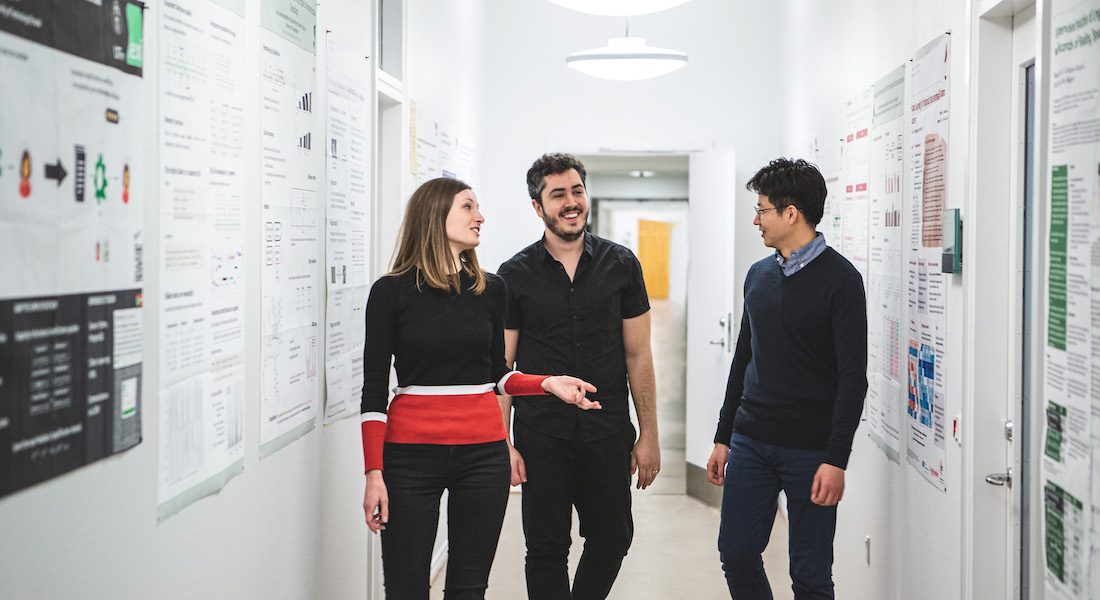A record number of PhD students has been enrolled at the Department of Computer Science in 2020
Large demand from the industry and increased attention from foundations have boosted the growth of PhD students in computer science at the University of Copenhagen. Head of Department, Mads Nielsen, is delighted to have welcomed three times as many new PhD students than five years ago.

Never before have so many PhD students been enrolled at the Department of Computer Science at the University of Copenhagen as in 2020.
This year, the department welcomed 33 new PhD students. This is three times as many as just five years ago and more than twice as many as the Faculty of Science had set as a goal for the Department of Computer Science, which is one of the smaller departments at the faculty.
Head of Department and Professor, Mads Nielsen, is pleased that the Department of Computer Science will be able to contribute with more IT graduates who are highly requested at all levels of education.
- Society needs more IT graduates and thus, there must also be more researchers to educate them. In recent years, we have also experienced high demand from the industry for PhD graduates, especially in the field of artificial intelligence and privacy. When graduated, many of our PhDs choose a job in the industry where their specialist knowledge is valuable, says Mads Nielsen.
Of course, more PhD students also play a central role in enabling the Department of Computer Science to deliver more research at a high international level.
- The work of the PhD students is the engine of the department's research. They do a great deal of the work behind the results. We hope to be able to enrol just as many next year, or maybe even more, says Mads Nielsen.
More external funding, international applicants, and women
In recent years, the Department of Computer Science has experienced explosive growth, both in the number of employees and students. The increasing number of PhD students has been possible, among other things, because the department has succeeded in financing a large part of its research projects with external grants and through collaboration with industry.
Since 2014, the department's income from external grants has almost doubled, and so has the number of PhD students who are fully or fractionally financed or funded by external means. In 2020, four of the newly enrolled PhD students are fully industrial PhDs. In 2016, the Department of Computer Science had no industrial PhDs, and in 2017 there was only one.
In addition, the department has experienced great interest from international applicants. In 2020, almost 79 percent of the newly enrolled PhD students are foreigners, which is also a record for the department.
- We are happy to be able to attract talents from all over the world to Copenhagen. Computer Science needs perspectives from all kinds of people. Many of our foreign PhD students are even so happy to live in Denmark that they find jobs here subsequently, says Mads Nielsen.
Finally, the number of female PhD students has also increased in recent years. In 2014 and 2015, there was one and zero, respectively, and in both 2019 and 2020, seven female PhD students were enrolled at the Department of Computer Science.
Among the faculty's most talented
Another fine result is the Department of Computer Science’s share of PhD students in the Faculty of SCIENCE’s TALENT doctoral fellowship – a doctoral programme co-funded by the European Union, offering PhD scholarships in the natural and life sciences to exceptionally talented, young researchers.
In 2018-2020, SCIENCE has enrolled 74 TALENT PhD students, of which 15 belong to the Department of Computer Science. Considering that the department is not one of the biggest departments at SCIENCE, this is certainly something to be proud of, says Mads Nielsen:
- Although DIKU only makes up about five percent of the faculty, we have received 20 percent of the TALENT PhD places. Well-done of our administrative staff who has worked hard to secure the places, says Mads Nielsen.
Topics
Related News
Contact
Mads Nielsen
Head of Department and Professor
madsn@di.ku.dk
Caroline Wistoft
Communications consultant
cawi@di.ku.dk
